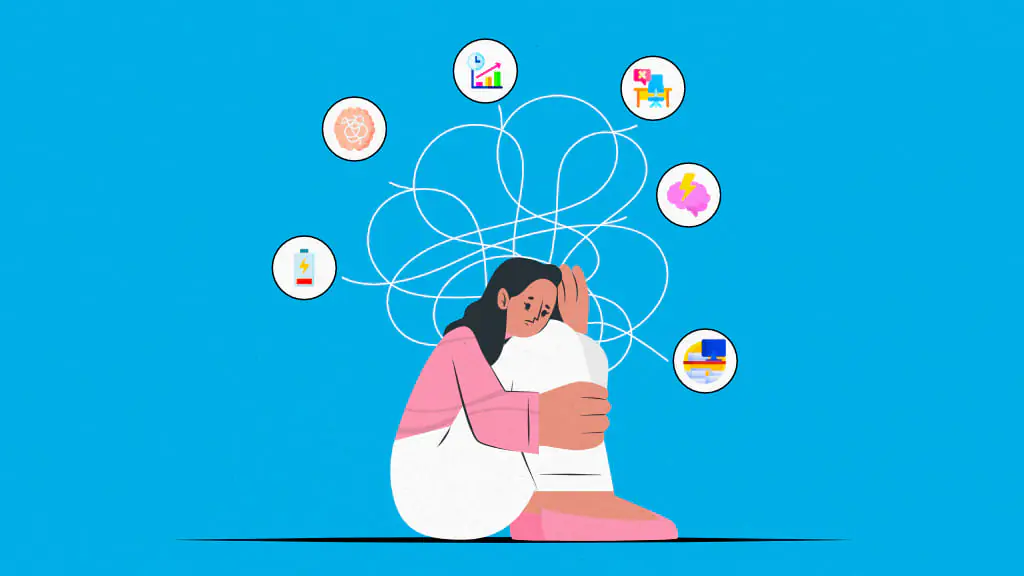Taking care of mental health is as important as addressing physical well-being, especially in a demanding workplace environment. Mental health leave in Australia not only supports workers but also fosters healthier, more productive workplaces. For employers and employees alike, understanding how mental health leave works is critical.
This blog covers the essentials of mental health leave in Australia, from its significance to how to utilise your entitlements. Whether you’re feeling overwhelmed, dealing with anxiety, or simply seeking balance, this guide offers practical information to help you.
What Is Mental Health Leave?
Mental health leave is a type of personal leave designed for employees who need time off work to address mental health challenges. It allows individuals to focus on their mental well-being, seek therapy, and regain balance in their lives. Mental health leave acknowledges that mental health is just as vital as physical health and is integral to fostering positive workplaces.
Unlike annual leave, mental health leave is a necessity—not a luxury. It ensures that employees can take care of their mental well-being without the added stress of financial or job insecurity.
How Does Mental Health Leave Work in Australia?
In Australia, mental health leave falls under the category of personal leave (or sick leave), as outlined in the Fair Work Act 2009. Full-time and part-time employees are entitled to a minimum of 10 days of paid personal leave per year.
Key Points About Mental Health Leave in Australia:
- Valid Reasons: Mental health leave can be utilised for conditions like anxiety, depression, burnout, or stress.
- Certificate Requirements: Employees may be required to provide a medical certificate from a registered healthcare professional (such as a doctor or pharmacist) to justify their leave.
- Employer Obligations: Employers must offer reasonable flexibility and ensure the request is handled confidentially.
Recognising the Signs You May Need Mental Health Leave
Identifying when to take mental health leave is just as important as knowing you’re entitled to it. Here are common signs to watch for:
- Excessive Stress or Anxiety: Constantly feeling overwhelmed or on edge could indicate it’s time for a break.
- Persistent Sadness or Irritation: Changes in mood or loss of interest in daily activities may signal depression.
- Difficulty Concentrating: Trouble focusing or maintaining productivity is often linked to mental health challenges.
- Physical Symptoms: Frequent headaches, digestive issues, or other stress-related symptoms shouldn’t be ignored.
- Burnout: Feeling emotionally drained, detached from work, or physically exhausted can suggest burnout.
If you’re experiencing any of these signs, it’s essential to acknowledge them and take steps to prioritise your well-being.
How to Take Mental Health Leave
Taking mental health leave in Australia is a fairly simple process when you follow these steps:
1. Talk to a Healthcare Provider
Consult a professional to discuss your concerns. A doctor or pharmacist can assess your condition and issue a medical certificate if necessary. For quick assistance, services like OnCare Health provide affordable, same-day online sick leave certificates for just $12.99.
2. Inform Your Employer
Notify your employer as soon as possible. While you don’t need to disclose specific details, communicating the need for personal leave due to “health reasons” is sufficient.
3. Provide Documentation
If required by your workplace, provide your medical certificate or supporting documents confirming the need for leave.
4. Focus on Recovery
Use this time to participate in therapy, engage in self-care, or other activities that help restore your mental health.
5. Plan Your Return
If necessary, discuss phased or supported returns to work with your employer to ease the transition.
Why Mental Health Leave Matters
Mental health leave isn’t just about taking a break—it’s about creating sustainable well-being for both employees and organisations. Here’s why it’s crucial:
For Employees
- Prevents Burnout: A timely break can stop prolonged stress from escalating.
- Improves Productivity: Taking time off to recharge enables you to return to work more focused and engaged.
- Boosts Emotional Well-Being: Accessing professional support can promote long-term mental stability.
For Employers
- Enhances Employee Retention: Supporting mental health fosters loyalty among teams.
- Improves Workplace Morale: A positive culture around mental health creates an inclusive, productive environment.
- Reduces Sick Days: Proactive mental health initiatives can prevent extended absences.
Frequently Asked Questions
Am I entitled to mental health leave?
Yes, all full-time and part-time employees in Australia are entitled to paid personal or sick leave. This can be used to address mental health concerns.
How do I obtain a medical certificate for mental health leave?
You can visit a doctor for a consultation or use online services like OnCare Health to obtain a medical certificate within minutes.
How long can I take off for mental health leave?
The duration will depend on your specific needs and condition. Work with your healthcare provider and employer to determine the appropriate length of leave.
Do I need to disclose details of my condition to my employer?
No, you are not required to share specific health details with your employer. A medical certificate stating your inability to work will usually suffice.
Can casual employees take mental health leave?
Casual employees are typically not entitled to paid personal leave, but they can take unpaid leave for mental health reasons under certain circumstances.
Final Thoughts
Mental health leave is an essential resource for maintaining mental well-being and fostering positive workplace dynamics. It’s not just a benefit—it’s a necessity for sustainable health and productivity.
Whether you’re an employee dealing with immense stress or a business looking to build a healthier workforce, recognising the importance of mental health leave is the first step.
If you’re considering taking mental health leave but don’t know where to start, services like OnCare Health make obtaining a leave certificate quick and stress-free. Visit OnCare Health today for more information.

